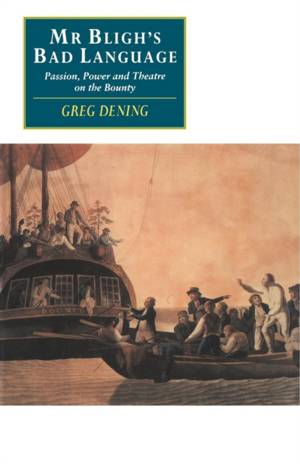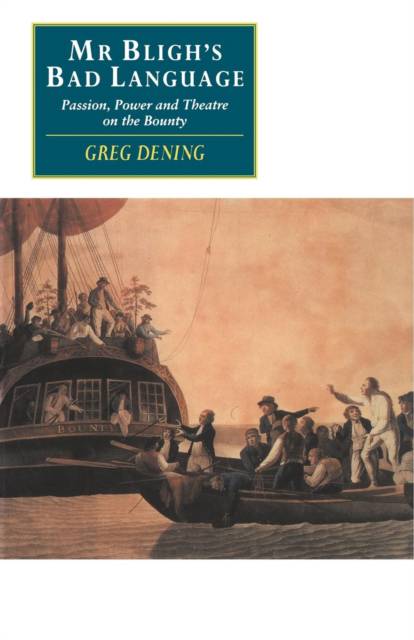
- Afhalen na 1 uur in een winkel met voorraad
- Gratis thuislevering in België vanaf € 30
- Ruim aanbod met 7 miljoen producten
- Afhalen na 1 uur in een winkel met voorraad
- Gratis thuislevering in België vanaf € 30
- Ruim aanbod met 7 miljoen producten
Zoeken
€ 48,95
+ 97 punten
Uitvoering
Omschrijving
Captain Bligh and the mutiny on the Bounty have become proverbial in their capacity to evoke the extravagant and violent abuse of power. But William Bligh was one of the least violent disciplinarians in the British navy. It is this paradox that inspired Greg Dening to ask why the mutiny took place. His book explores the theatrical nature of what was enacted in the power-play on deck, on the beaches of Tahiti and in the murderous settlement at Pitcairn, on the altar stones and temples of sacrifice, and on the catheads from which men were hanged. Part of the key lies in the curious puzzle of Mr Bligh's bad language.
Specificaties
Betrokkenen
- Auteur(s):
- Uitgeverij:
Inhoud
- Aantal bladzijden:
- 460
- Taal:
- Engels
- Reeks:
Eigenschappen
- Productcode (EAN):
- 9780521467186
- Verschijningsdatum:
- 25/03/1994
- Uitvoering:
- Paperback
- Formaat:
- Trade paperback (VS)
- Afmetingen:
- 140 mm x 213 mm
- Gewicht:
- 612 g

Alleen bij Standaard Boekhandel
+ 97 punten op je klantenkaart van Standaard Boekhandel
Beoordelingen
We publiceren alleen reviews die voldoen aan de voorwaarden voor reviews. Bekijk onze voorwaarden voor reviews.











